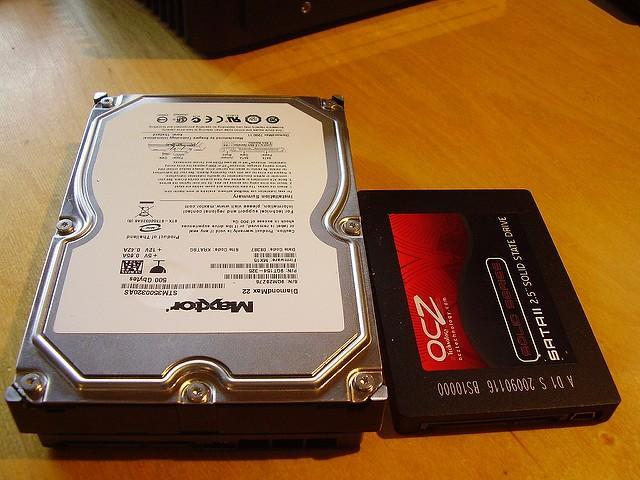Our company recently invested in SSD (solid-state-drive) arrays for our database servers, which allowed us to improve the speed of our services. As you likely know, it’s challenging to balance cost, reliability, speed and storage requirements for a business. While SSDs remain much more expensive than a performance hard disk drive of the same size (up to 8 times more expensive according to a recent EMC study), in our case, the performance throughput far outweighed the costs.
Considerations before investing in SSD

- Reliability: SSDs have proven to be a reliable business storage solution, but transistors, capacitors, and other physical components can still fail. Firmware can also fail, and wayward electrons can cause real problems. As a whole, HDDs tend to fail more gracefully in that there may be more warning than a suddenly failed SSD. Fortunately, Enterprise SSDs are typically rated at twice the MTBF (mean-time-between-failures) compared to consumer SSDs, a reliability improvement that comes at an additional cost.
- Application: SSDs may be overkill for many workloads. For example, file and print servers would certainly benefit from the superior I/O of an SSD storage array, but is it worth the cost? Would it make enough of a difference to justify the investment? On the other hand, utilizing that I/O performance for a customer-facing application or service would be most advantageous and likely yield a higher ROI. In our case, using SSDs for data validation databases is a suitable application that can make a real difference to our customers.
How SSDs have improved our services
Our data validation services rely on database queries to generate validation output. These database queries are purely read-only and benefit from the fastest possible access time and latency — both of which have been realized since moving our data validation databases to SSD.
SSDs eliminate the disk I/O bottleneck, resulting in significantly faster data validation results. A modern SSD boasts random data access times of 0.1 milliseconds or less whereas a mechanical HDD would take approximately 10-12 milliseconds or more. This is the difference in time that it takes to locate the data that needs to be validated, making SSDs over 100 times faster than HDDs. By eliminating the disk I/O bottleneck, our data validation services can take full advantage of the superior QPI/HT systems used by modern CPU and memory architectures.













